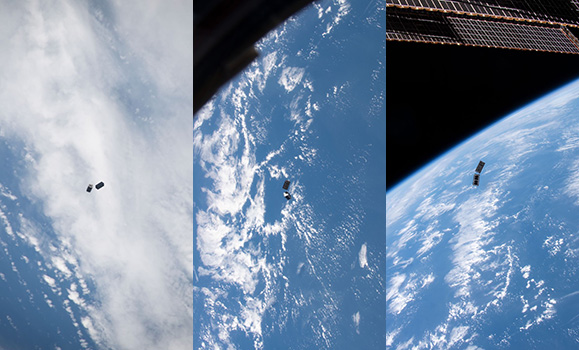Over the holiday break when many Dal students were decompressing from the end-of-term crunch, a hardy group from the Faculty of Engineering were on high alert as they awaited the much-anticipated launch of a mini satellite they'd built into orbit around Earth.
LORIS, a shoebox-sized nanosatellite designed and built by students in the Dalhousie Space Systems Lab over the past several years, was finally released last Thursday (Dec. 29) by NASA after its ascent to the International Space Station late last fall.
The student team, led by Engineering Masters student Arad Gharagozli, created the satellite as part of Canada's CubeSat program. A CubeSat is a miniature satellite that can be used for various purposes, including taking imagery, conducting experiments, and supporting educational projects.
LORIS is the first CubeSat from Atlantic Canada to be sent into orbit. It is one of more than a dozen such rigs being launched as part of the Canada Space Agency-funded program.
Now that it's in orbit, LORIS — which stands for low-orbit reconnaissance imagery satellite — will aim to provide a window for researchers into how certain technologies function while in space. It will also collect aerial images of Earth and Halifax.
Gharagozli and the other students in the Dal space lab have since made partial contact with LORIS using a mobile station equipped with a special antenna. Further attempts will be made in the weeks ahead.
Researchers aboard the ISS have beamed back some images of LORIS floating above Earth. Look at the breathtaking shots below. You can also watch a video of the launch.
Bon voyage, LORIS!
Learn more: Tiny Dal‑built satellite begins journey to big space launch


